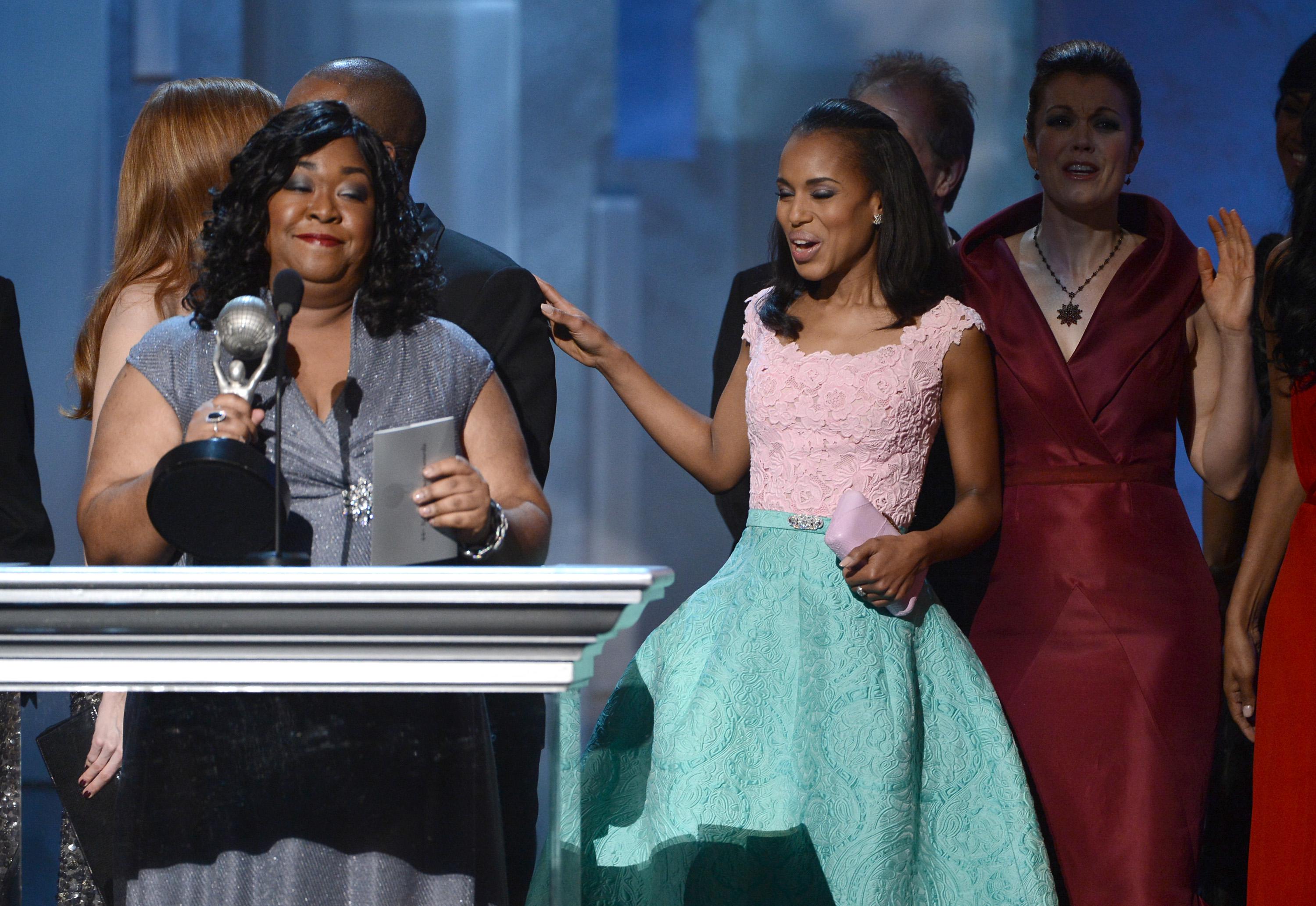On NPR on Thursday, Shonda Rhimes described the Washington players who populate her ABC drama Scandal as “monsters set adrift in a world where there are no rules.” That’s not a particularly revolutionary way of portraying politicians on the small screen. But unlike the Washington schemers written by the Sorkins and Finchers of the world, Scandal’s central antihero is a black woman. And Shonda Rhimes can probably thank Shonda Rhimes for that.
When NPR asked Rhimes if she helped “create the change” in representing complicated and diverse women on screen, Rhimes told the story of pitching the medical drama Grey’s Anatomy to ABC in 2005. Rhimes conceived of Grey’s as a racially diverse show featuring “smart women competing against one another” that she’d actually watch. But higher-ups at ABC had different ideas about what women really wanted. “A bunch of older guys told me that nobody was going to watch a show about a woman who had casual sex and threw a guy out the night before her first day of work—that that was completely unrealistic and that nobody wanted to know that woman,” Rhimes told NPR. “I remember sitting in that meeting and thinking, ‘Wow they don’t know anything about what’s going on in the world right now.’ ”
Grey’s was a massive success (it’s now in its 10th season), establishing Rhimes as one of the most powerful and compelling creators in TV. Meanwhile, the “older guys” who doubted Rhimes no longer work for the network. “That kind of conversation would never happen now,” Rhimes told NPR. Executives are “no longer worried about whether or not the women are likeable.” It used to be that if you pitched a show with a female lead, “it was so rare [that] everyone wanted that person to be perfect, because she had to represent everybody.” White female characters, at least, are now allowed to be complex. Scandal’s Olivia Pope, however, “is very rare because she’s an African-American woman,” Rhimes told NPR, “and everyone wants her to be perfect because she has to represent everyone.” The good news is that Rhimes now has the clout to reject that premise: “There’s a box you get put in. My goal is to blow that box wide open.”
Rhimes is speaking to a central challenge of breaking gender and race barriers on television: Because nonwhite, non-male leads represents a risk for a network, producers can put pressure on writers to play it safe in other ways. But characters that are designed to “represent” all women, or all black women, are guaranteed to be boring to pretty much everyone. Rhimes is successful enough now that she can call the shots. I’d be interested to hear how these diversity and likability conversations go with television creators who are not established powerhouses.
